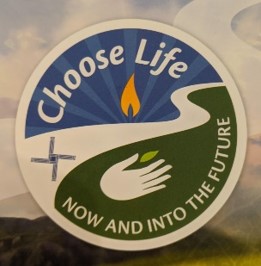“Poverty is not a personal failure; it is a systemic failure – a denial of dignity and human rights.”
– UN Secretary-General António Guterres
Brigidines recognise International Day for the Eradication of Poverty (17 October) and its message to the world: ‘ending poverty is about dignity, justice, and belonging, not just income. ‘
The Day’s theme for 2025:
Ending social and institutional maltreatment by ensuring respect and effective support for families,
highlights the need for ‘respect’ and ‘effective support’ for families – by building institutions that help families stay together, thrive, and shape their own futures.
Poverty Is Not Neglect
 Poverty is not the result of individual failure, but of systemic exclusion. Families living in poverty are often caught in a web of discrimination and institutional distrust that limits their access to education, health care, housing, and social protection. In many countries, limited resources are directed towards surveillance and investigations rather than the provision of real support.
Poverty is not the result of individual failure, but of systemic exclusion. Families living in poverty are often caught in a web of discrimination and institutional distrust that limits their access to education, health care, housing, and social protection. In many countries, limited resources are directed towards surveillance and investigations rather than the provision of real support.
Recognizing this reality means shifting from a culture of control to one of respect and cooperation — one that acknowledges parents’ efforts to provide for their children despite immense challenges. (Source: UN Social Inclusion)
On International Day for the Eradication of Poverty 2025, UN declares the need to change course, and strongly encourages three main shifts:
- From control to care: Design services that start with trust. Reduce punitive conditions, streamline documentation, and prioritize respectful, person-centred interactions.
- From surveillance to support: Rebalance investments away from monitoring and removal toward family-strengthening services: income support, quality childcare, adequate housing, mental health care, parenting support, and access to justice.
- From top-down to co-created solutions: Involve families living in poverty at every stage—assessment, design, budgeting, delivery, and evaluation—so policies reflect real needs and constraints..” (Source: UN)
Did you know?
-
Around 1.1 billion people face acute multidimensional poverty, experiencing overlapping
 deprivations in health, education, and living standards; gaps within countries can exceed gaps between countries.
deprivations in health, education, and living standards; gaps within countries can exceed gaps between countries. -
Climate shocks hit the poor hardest: the poorest half of the world contributes a small share of emissions yet bears a large share of income losses from climate-related hazards.
-
Conflict deepens poverty: the share of people in extreme poverty living in fragile and conflict-affected settings has risen sharply, and large populations are regularly exposed to violence and instability (Source: UN)
Called to respond to the cry of Earth
and of those made poor.
– Invitation and Call 2022

